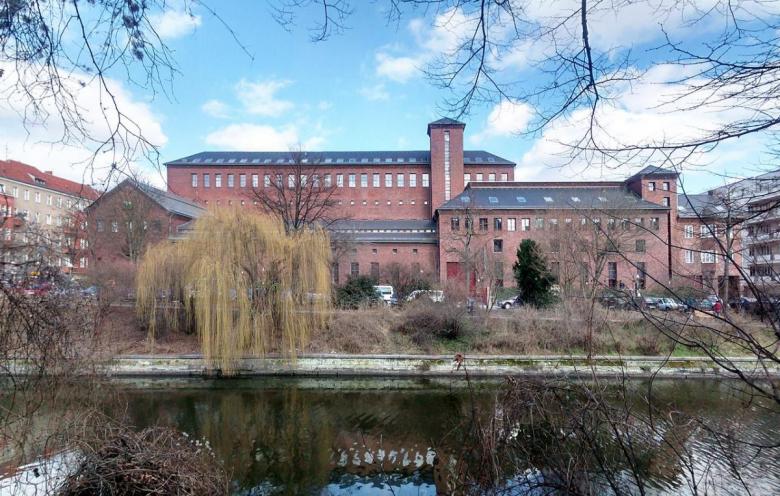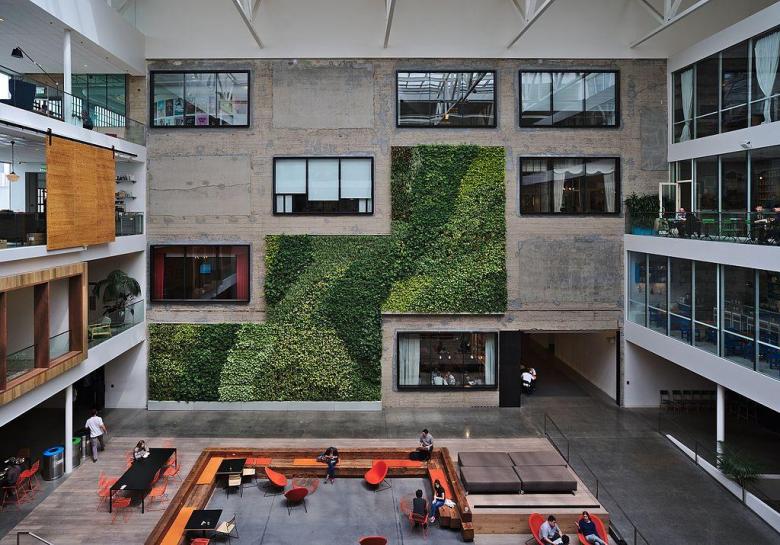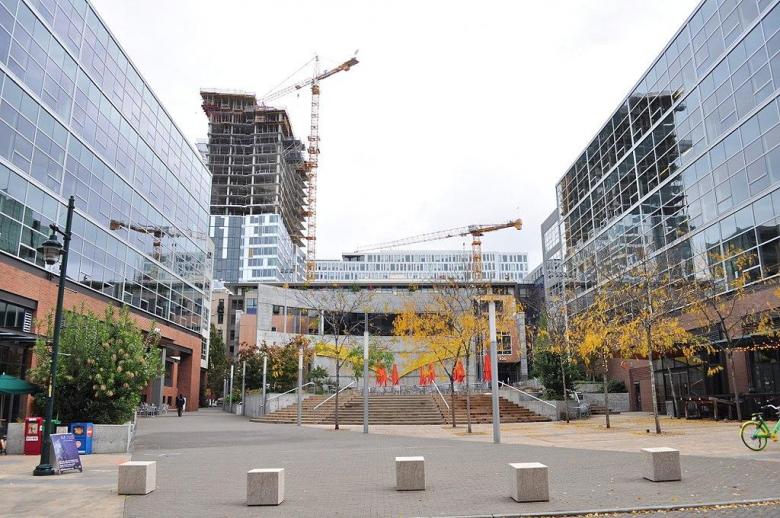The Urban Strategies of Internet Companies, Part 1
Does Downtown Belong to E-tailers?
In Berlin, Zalando and Google are only just beginning to actively influence the urban development. On the West Coast of the United States, on the other hand, the influence of large internet companies on urban space is obvious: Seattle is suffering from Amazon's growth, and now the online retailer is looking for a location for its second North American headquarters.
See also: "Toronto Falls into Google’s Clutches," the second part of Oliver Pohlisch's two-part "The Urban Strategies of Internet Companies."
Large internet companies are not only monopolizing virtual space, they are increasingly shaping the urban environment as well. The online trade on Amazon threatens to create deserted pedestrian zones in Germany's medium-sized centers. Meanwhile, in Berlin, Hamburg and Munich, Airbnb is competing with the hotel industry and helping to further accelerate the shortage of housing space, and Uber is shaking up the passenger transportation sector. This is aggravated by the fact that internet companies with a targeted location policy are able to intervene directly in urban development processes, as can be observed currently in Germany's capital.
Google, for example, wants to open a Google Campus in Berlin's Kreuzberg district. There are another six of them in other cities around the world. The Governing Mayor Michael Müller (SPD) expects this to consolidate Berlin's position as one of the European start-up strongholds, while Google will, among others, use its campuses to absorb business ideas of nerds and hipsters for its own portfolio following a suitability test. Under the guise of low-threshold, informal access, it therefore seeks the proximity of the so-called creatives.
Not far from the planned Google Campus, the German Amazon rival Zalando wants to build a second company headquarters — of all places on the Cuvry-Brache (Cuvry wasteland), the future use of which has been the subject of heated debate for years. Zalando's new headquarters on the Friedrichshain side of the Spree River, which is currently still under construction, will be too small by the time of its completion, due to the rapid expansion of the firm belonging to the Samwer Brothers' Rocket Empire.
The two projects are met with discontent in a district whose existing stock of buildings has long since ended up in the shopping baskets of German and foreign investors due to its central location. The suppression of low-income tenants and small businesses resulting from this real estate shopping frenzy led to a revival of urban protests, which helped to bring about a shift in the political balance of power across the city. For the time being, however, the gentrification of Kreuzberg and adjacent neighborhoods is continuing unabated and local initiatives fear that the Google Campus and the Cuvry Campus accommodating the Zalando offices will accelerate the process even further and considerably burden the traffic routes in the district.
Activists mobilizes their protests by referring to corresponding campaigns in the US. What is currently gathering momentum on the banks of the Spree has long since reached its full potential on the Pacific coast, the epicenter of the internet economy. The big players also demonstrate architectural presence in Silicon Valley – with gigantic buildings, such as the circular Apple headquarters designed by Norman Foster. In the suburban valley, there is also a struggle for urban densification, because the internet boom has caused housing space to become scarce and unaffordable, even for high-wage IT workers.
Even more unbearable, however, is the situation in neighboring San Francisco, where the busy Silicon Valley bees prefer to live. The internet companies are increasingly opening large branches in the city or, like Uber and Airbnb, have chosen the city for their headquarters. Land and real estate prices are now reaching Manhattan levels, the public transport system is in danger of collapsing, the income gap between rich white households and poor black households is higher than anywhere else in the US, and the streets are full of homeless people. The outrage at the urban conditions escalated a few years ago when commuter buses to Silicon Valley used by Google and Facebook were blocked.
Meanwhile, further north on the Pacific coast, in Seattle, Amazon, the world's largest online retailer, occupies 15 to 20 percent of all inner-city office spaces. No other downtown in North America is dominated in such a way by a single corporation. Critics accuse Amazon of behaving like a sociopathic roommate: the corporation makes use of the city's resources without giving anything back to it. Its boss, Jeff Bezos, who was recently declared the richest man in the world, had not exactly excelled with philanthropic activities in the past. Instead, Amazon has repeatedly made the headlines about unacceptable working conditions, aggressive business practices and the cultivation of a highly hierarchical management style.
Seattle also has to contend with traffic problems, housing shortage and a high level of homelessness. In order to avoid negative effects reaching the extent of San Francisco's growth pains, Amazon plans to channel its expansion towards a second headquarters at another location in North America. In a competition of an unprecedented scale, a total of 238 municipalities and regions have applied for the so-called HQ2, which is to accommodate 50,000 workplaces. US media have researched that some of them make Amazon outrageous offers: local governments in the sprawling Bay Area of all places, are, just like Boston, enticing the online giant with the offer that a team of public servants would guide it safely through the complex planning process; Chicago wants to reimburse the expected annual income tax volume of US$ 1.32 million from Amazon employees to the Group; Fresno in California is willing to let Amazon decide on the use of the company's taxes and duties. Now whittled down to twenty, the city to be awarded the bid will be decided later this year.
Part 2 of Oliver Pohlisch's "The Urban Strategies of Internet Companies," which heads to Toronto and other cities to look at what so-called "smart city" plans means for cities, will be published the week of February 19.
This article originally appeared on German-Architects as "Wenn die Downtown dem Onlinehändler gehört." Translation by Bianca Murphy.




